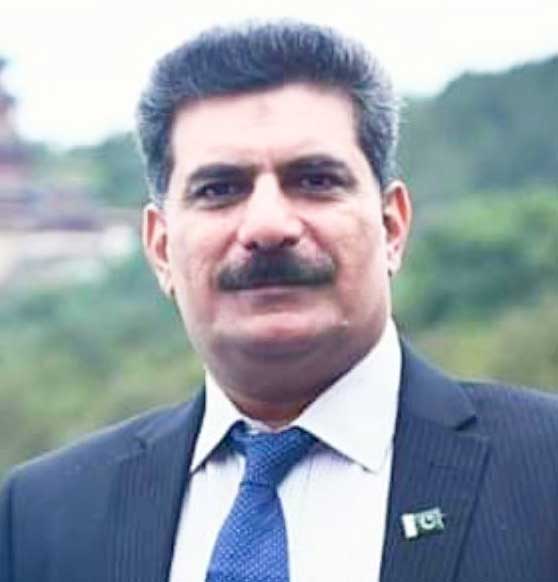The United States is leaving Afghanistan after almost two decades. And, to keep an eye on the post-drawdown scenario it is looking for airbases in Pakistan. The Prime Minister of Pakistan has categorically rejected the US demand citing it against the National interest of Pakistan. This is not the first time that the US has asked for Pakistan’s assistance. There have been many instances in the past when the US has sought Pakistan’s assistance in dealing with their problems.
Pakistan and the US have a long history of engagement but history is witness that the US has always abandoned Pakistan after it no longer needed Pakistan’s help. Moreover, the Prime Minister of Pakistan has also asked for civilized and equal relations with the US. This is exactly in line with the vision of Quaid-i-Azam Muhammad Ali Jinnah who desired ties with all states based on equality.
Despite the vision of the Founding Father, Liaquat Ali Khan’s first up visit to the US instead of Moscow pushed Pakistan into the US block. Pak-US ties have seen highs and lows since the beginning. However, after preferring the US over USSR Pakistan left no stone unturned in helping the US in the time of need. It became a member of SEATO in 1954 and SANTO in 1955 to further enhance the ties. Both States signed Mutual Defence Agreement and Bilateral Defence Cooperation Agreement in 1954 and 1959, respectively to further boost the ties.
A major threat to the National security of Pakistan emerged from India and Pakistan considered the US as an important ally against Indian aggression. But unfortunately, this ally did not show up when Pakistan needed its help at the time of Indian aggression in the 1965 and 1971 wars.
Let alone helping Pakistan at the time of need, the US imposed economic and military sanctions on Pakistan. Meanwhile, Pakistan, by providing its Badaber air base to the US, irked the USSR which threatened Pakistan with grave consequences after the U-2 incident. Pakistan had to pay for this help to the US as the USSR vetoed multiple resolutions in the United Nations asking for the UN intervention in Kashmir and helped India in the 1971 war.
Similarly, the US also backed away after the end of the cold war. It considered Pakistan an important ally in its war against the USSR but when the USSR disintegrated it went away leaving Pakistan with a large influx of refugees, drugs, weapons and Mujahideen. This Kalashnikov culture tore apart Pakistan’s social and political fabric. The US then imposed Pressler Amendment sanctions on Pakistan which further aggravated the problems of Pakistan. The US ambassador Nicholas Platt even threatened Pakistan of putting it on the list of state sponsors of terrorism and accused Pakistan of sponsoring terrorism in India. This was the reward Pakistan received from the US after all the assistance it provided.
After the 9/11 incident, a shift in the US stance was observed as it needed Pakistan’s assistance in the war against terrorism. It started to provide economic and military assistance to Pakistan and considered Pakistan as a major non-NATO ally. However, after years of cooperation and support, what Pakistan got at the end was a plethora of allegations and accusations from the US. The US instead of acknowledging Pakistan’s role termed Pakistan as a state harbouring terrorism. It accused Pakistan of deceiving the US and providing safe havens to terrorists. Here, it is pertinent to mention that Pakistan got this reward from the US at the cost of more than 83,000 lives and a loss of more than 126 billion dollars.
On the contrary, the US has always had good relations with India. It hailed India’s neutral status and provided economic and military assistance in the 1950s. After Nuclear tests in 1974, the US instead of imposing sanctions on India considered it as a ‘fait accompli’. The US created a loophole to exempt India from Symington and Glenn amendment sanctions in 1977-1978 and only targeted Pakistan. And, since 2000 the US considers India as a balancing force against China. It signed a Nuclear Defence agreement with India in 2008 and started a civil nuclear corporation but at the same time, Pakistan was denied a similar opportunity. Other than that, the US and India have three major agreements for military and strategic cooperation and Intelligence sharing. For example, LEMOA, COMCASA and BECA. The US also supports Indian entrance into the NSG group but denies equal opportunity to Pakistan. This shows that the US has even better relations with India because their interest matters them the most. Pakistan has protested many times but in vain.
However, Pakistan could not maintain good relations with the USSR because of the US. This has helped India be it the 1971 war or Kashmir Issue. Russia considers Kashmir as an internal matter of India. Therefore, it considered the abrogation of articles 370 and 35A as an Indian internal matter. Now, as the US is exerting pressure on Pakistan for air bases, the Prime Minister has made the right move by preferring Pakistan’s National interest over the US pressure. The absolute no to the US will have positive impacts on the future of Pakistan.
Living behind the Shadows of Cold War relations, Pakistan and Russia are slowly but surely coming closer. Both States have huge bilateral cooperation potential. The recent Pakistan stream gas pipeline agreement will be a start of a new chapter in Pakistan-Russia relations. Pakistan by not giving its airbases to the US is making a strong statement for future cooperation with Russia. Enhanced bilateral ties will also help Pakistan in explaining the exact situation of Kashmir to Russia.
Similarly, Pakistan’s all-weather ally China will see this decision as a step forward towards more strategic relations. It will also give stability to the China-Pakistan Economic Corridor because the US presence in Pakistan would not have a good impact on it. The Prime Minister in his recent interview has categorically said that Pakistan will not allow the US to affect the ties with China. Not only for Russia and China, but it is also a message for other Regional powers that Pakistan wants peaceful and equal ties with other states without any external influence.
Lastly, it will save Pakistan from terrorism, the menace which Pakistan has been fighting since its involvement in the war against the USSR as the US ally. A civil war may follow the US withdrawal from Afghanistan. And by not agreeing to the US demand Pakistan has kept itself neutral. Pakistan has been the victim of the US decisions in the past but this time by keeping Pakistan’s National interest at the forefront the Prime Minister of Pakistan has made the right choice.
Above all, this decision also reflects the aspirations of the people of Pakistan who have lost trust in the Pak-US ties because of the continuous betrayal by the US.
Sign in
Welcome! Log into your account
Forgot your password? Get help
Password recovery
Recover your password
A password will be e-mailed to you.







